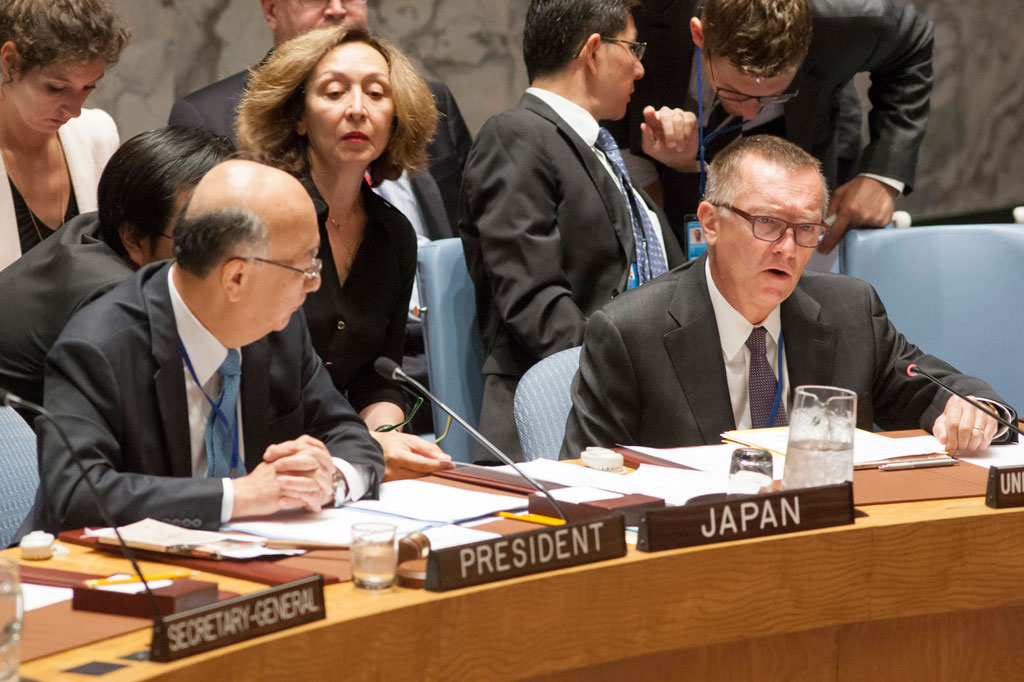New York – Baghdad – The United Nations Security Council has once again condemned Iran for violating international laws by arming militias in Iraq, while U.N. Secretary General Ban Ki-moon voiced his concern over the launching of ballistic missiles by the Persian State.
U.N. political affairs chief Jeffrey Feltman briefed the 15-member Security Council on Monday on Ban’s first bi-annual report on the implementation of the Joint Comprehensive Action Plan (JCPOA).
Feltman said that Iran has violated the international laws by sending arms and weaponry to militias fighting in Iraq.
The Secretary General’s report said that in early March 2016, during military exercises, Iran launched a series of ballistic missiles. The report included details from Iranian media and from information provided to the Secretary-General from France, Germany, the United Kingdom and the United States.
“While it is for the Security Council to interpret its own resolutions,” Feltman said, “the Secretary-General stressed that we must maintain the momentum created by the conclusion of the Joint Comprehensive Plan of Action, consistent with its constructive spirit.”
“In this regard, he calls upon Iran to avoid such ballistic missile launches which have the potential to increase tensions in the region,” he added.
The Council endorsed the JCPOA on July 20, 2015 in Resolution 2231, calling it a “culmination of diplomatic efforts” by the so-called E5+1 – which includes China, France, Germany, Russia, the United Kingdom and the United States – and Iran.
The Secretary General’s report focuses on the restrictive measures in Annex B to the resolution, which includes restrictions on nuclear-related transfers and activities, ballistic missile-related transfers and activities, arms-related transfers, as well as an assets freeze and a travel ban.
Western countries and Russia had different positions regarding the report, as some have criticized Iran for launching ballistic missiles and threatening security in neighboring states, while Russia called upon the parties to the JCPOA to fully abide by UNSCR 2231.
In comments to Asharq al-Awsat newspaper, Iraqi Prime Minister’s Spokesman Saad Al-Hadithi said that the official mechanism that is adopted in the armament of Iraqi forces was based on a platform of joint cooperation between the Iraqi government and other states.
Al-Hadithi went on to say that the only channel for arming the Iraqi forces was through the government, noting that Iraq was not receiving any arms for free.
For its part, the State of Law Coalition, which is leading the Iraqi government, stressed that Iran was strongly cooperating with Iraq on the armament level, adding that the Persian state was dealing with the Iraqi government and avoiding any direct cooperation with unofficial armed factions.
In remarks to Asharq al-Awsat newspaper, Adnan Al-Sarraj, a senior official at the State of Law Coalition, said that military cooperation between Iran and Iraq was well-known to the United Nations.
He added that the Iraqi government was accepting arms from any international party provided that the Iraqi sovereignty is respected.
On a different note, nine people accused of storming Saudi diplomatic missions in Iran in January appeared in a Tehran court on Monday, Fars news agency reported, a few weeks after President Iranian Hassan Rouhani urged the judiciary to take action.
The suspects are accused of “disturbing the public order and damaging embassy buildings”, according to state media. Twelve other suspects were absent from the first hearing, Fars said.
